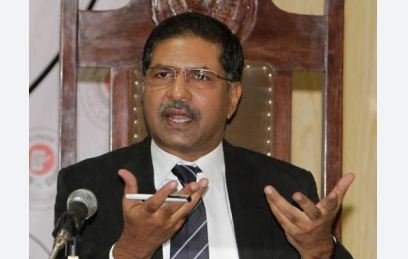Parliamentary leader alleges individuals being coerced into voting, says genuine consent not involved
Saifullah Ansar
ISLAMABAD: During his speech in a Senate session on Sunday, the parliamentary leader for PTI expressed his concerns, stating that the constitution unites the people rather than divides them.
He argued that without consensus on a constitution, it loses its legitimacy. He drew comparisons to the 1956 and 1962 constitutions, noting that both lacked national consensus and ultimately failed.
“The 1956 constitution did not have the support of the nation, and it died out. Similarly, the 1962 constitution also lacked consensus and met the same fate,” he added.
Zafar criticised the current process of pushing through the 26th amendment, alleging that individuals are being coerced into voting and that genuine consent is not involved.
He condemned this as a violation of both the constitution and democracy, pointing out that two previous governments had fallen victim to Article 58 of the constitution, a controversial provision that allowed for the dissolution of parliament.
“Our members did not show up due to fear of arrest. People are being bullied into voting for the amendment, and this coercion is a violation of constitutional principles and democracy,” he added.
Zafar stressed that the constitution is a social contract meant to bind people together and it can only be valid if built upon mutual consent and agreement. Without this, he warned, the constitution would lose its relevance, as had happened with previous versions.
“Constitutions are born out of the people’s will. If there is no agreement, it dies. The 1956 constitution died without national consensus, leading to martial law, and the same happened with the 1962 constitution, which was also imposed without agreement,” Zafar remarked.
His comments come amid heated debate surrounding the 26th Constitutional Amendment, with opposition parties raising concerns over the transparency and legitimacy of the process.

















